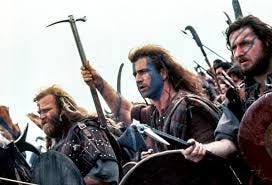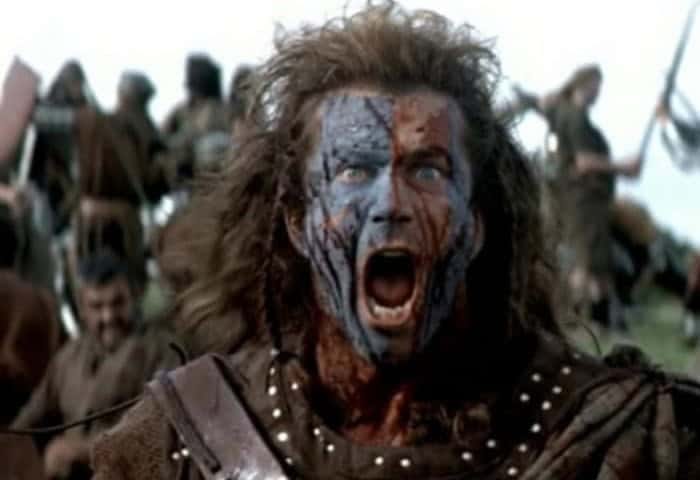You wake up on a steamy Friday morning and find out Israel is attacking Iran. Russia and Ukraine are still going at it, bombing each others’ apartment buildings and schools and bridges. You see video clips of what seems to be all kinds of chaos and protest in Los Angeles; the Trump folks are delighted to send in the National Guard, the mayor says that the craziness is contained to one small part of the city. Oh.
Conflict, it seems, is everywhere. When the sweetly cheerful woman at Starbucks hands you your wife’s iced coffee with a genuine smile, wishing “you have a great day,” you wonder what happened to her?
Here we are spending a small fortune to celebrate the 250th anniversary of the Army and Donnie’s 79th birthday — what a coincidence! — and running down immigrants in strawberry patches. It seems as if something really bad is going to happen. Seems a safe bet, doesn’t it?


Now, I’m all for celebrating the Army and their immeasurable sacrifices throughout our history but wasn’t playing Army was something you did as a kid? For a while, I was fascinated by the legend of Davy Crockett, carrying an upside-down hockey stick as “Old Betsy,” Davy’s flintlock rifle through the New Hampshire woods behind my house.
I remember briefly collecting Civil War cards, like baseball cards, really, of famously bloody Civil War battles like Shiloh and Chickamauga. And geez, some of the stirring battle scenes in movies like “Gone With The Wind” or “Gettysburg” or “Napoleon” (bad movie, great battle scenes) and especially, “Braveheart” had to be some of the most viscerally thrilling you could ever see.
Though historically speaking, Mel Gibson took some mighty liberties with the climactic Battle of Stirling which actually involved a bridge, visually speaking, thank goodness he did. Those “Braveheart” battle scenes put you right in the middle of the action while you munch your popcorn and sip your gigantic soda in your chair that raises your legs to hip-level. That’s the place to be in a battle, isn’t it?
When you’re a kid, the idea of battles, going to war against somebody, the Indians, the Confederates, whoever it was, seemed dramatic, exciting, daring. It fired up your youthful imagination in a way that seems so foreign to me now. While the heroism and bravery these soldiers showed in these epic moments throughout history was certainly real and inspiring, the aftermath of war, of these battles, was horrible.
The first time I saw Matthew Brady’s photographs of the bodies at Gettysburg, corpses strewn all over the battlefield, you could only imagine how horrible it must have been for him to record these scenes for history. You had to wonder if, maybe, in his mind, he was capturing all this to deter us from this kind of thing happening ever again. Of course, it made no difference.
If we’d have had photographers at the Coliseum, capturing the gory goings-on with gladiators and the lions or in France with full-color, stop-action shots of that brutally sharp blade of the guillotine doing it’s duty, we would have been repelled. For a moment. Maybe.
That element of our nature, that we’re somehow drawn to war and have been ever since people arrived on this planet, is something we’ll never get rid of. To me, that was something that somehow Bruce Springsteen stumbled onto with “Born In The USA,” a song that, musically speaking, was stirring, sounded somehow patriotic and alluring and heroic, while his lyrics — not the chorus — told another story entirely.
It was such a elusive, maybe even contradictory, element; celebrating the triumph, the heroism, the vanquishing of a foe on the one hand, cheering your country on in that sing-a-long, all-for-one, one-for-all chorus “Born in the USA, I was born in the USA” while underneath, in the lyrics, the impact of a war, any war — Vietnam in this case, our first loss — left us unsatisfied, embarrassed, even, maybe, dare I say it, ashamed.
And it was ironic, I guess, that someone who felt that so deeply, was stirred enough to imagine that whole song came from a guy who made no bones about him finding a way to get out of the draft, of going to Vietnam. As he’s said on stages across the globe, “somebody went in my place.”
I know the impact of wars now. I’ve read about them, watched movies about them, talked with men I know and admire, a friend of mine, a West Point graduate who went back into the Army as a 50-year-old to help his country in Desert Storm. Can you imagine what that took, leaving his wife and family to go back into battle for his country?
Battles still do fascinate me. The strategies, the decisive orders at a pivotal time, how the tides of a battle can shift, movement by movement, it’s still intriguing to me. From a distance. On a screen or in a book.
I guess that’s the thing you don’t understand as a kid, caught up in the heroism and bravery and legend, stories passed down from generation to generation. People die. In fact, that’s the intent of a battle. To make more people — your enemy — die than those wearing the same uniform as you.
When you look at it that way and it takes a long time, maybe a lifetime, to be able to do that, the wars and the battles fought on all the fields and jungles and deserts across the planet seem endless and everlasting. Shame on us.
IF BRUCE’S ORIGINAL CUT CONFUSED SOME, HIS REMIX, “THE FREEDOM MIX” MAKES IT CLEAR HOW HE SAW THE VIETNAM WAR - IN SOUND




I also think about those who came home injured in mind or body, or both. My Dad Matthew was one. He was a Hero and I always felt badly for what he endured and continued to endure, and I’m sure his premature death, was caused in part by the impact of the nine amphibious campaigns he took part in 1943-45.
When one side, followed by the other, declares "sometimes violence is the answer", that's when war happens.